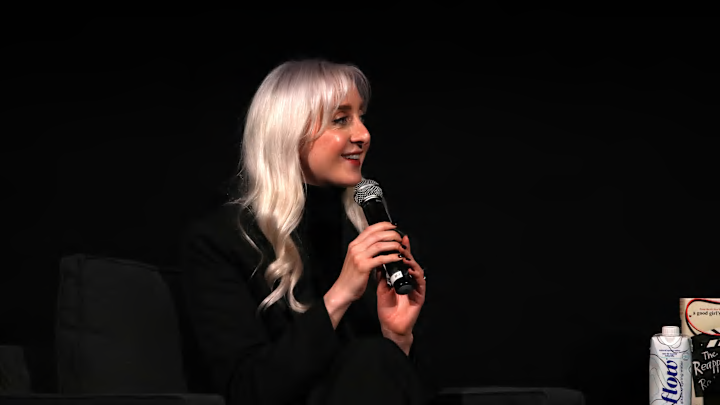Whether you’re active on Bookstagram or you’re a regular Netflix viewer, you have likely heard about A Good Girl’s Guide To Murder, which is a YA book series by Holly Jackson. The bestselling series follows Pippa Fitz-Amobi as she works to solve a supposed murder-suicide from five years ago. The TV adaptation was first released on BBC in the UK last month, followed by the North American release on Netflix in early August.
As readers, I think we almost always watch a page-to-screen adaptation and end up feeling at least a little disappointed because we have the ability to catch the small–and sometimes huge—details that were left out. Here are some of my thoughts on the show and how I feel it compares to the trilogy.
Casting
I actually think the casting was PHENOMENAL. Emma Myers, who was cast as 17-year-old Pip, truly captured everything that I loved about the FMC in the book. She was just as headstrong and committed to solving the case as she was in the book, with the addition of her vulnerability and fear as she gets closer to solving the case. Zain Iqbal, who was cast as Ravi, also did an incredible job. He portrayed the mourning brother so well, and his on-screen chemistry with Emma had me smiling my way through their scenes. Honourable mentions to Henry Ashton—cast as Max—for serving everything I hated about Max and Asha Banks—cast as Cara—for playing Pip’s best friend and really giving us that bond between the two characters.
Plot
One thing I really appreciated about this show was that the writers didn’t stray too far away from the original series. There were a few minor differences–such as the story taking place in a later decade so Pip used Instagram instead of Facebook–but nothing that took anything major away from the story for fans of the books. In fact, some of the additions to the story actually added a lot of depth, such as the flashback of a young Pip telling Sal where she saw a crying Andie go, indicating that Pip feels responsible for the death of Andie. While I did feel like six episodes weren't quite enough to really pique my interest, I did really love the storytelling.
Setting
The town of Little Kilton was absolutely adorable and featured all of the cozy yet mysterious vibes I was looking for. I loved the layout of the characters' houses, and the location of the calamity party–in a series of tunnels–really elevated those scenes and made them that much creepier. Overall, I think the setting was captured brilliantly and I felt really immersed in the story throughout the entire show.
In Conclusion...
As a big fan of the trilogy, I went into the show with low expectations just to save myself any potential disappointment, but I truly think it was done very well. The elements I loved in the books were there, and the changes to the story didn’t take anything away or leave me feeling like I had been let down–the books were definitely given justice! I am really hoping the series gets picked up for another season because Good Girl, Bad Blood—the second book in the trilogy—is my favorite, and I definitely want more after that finale!
